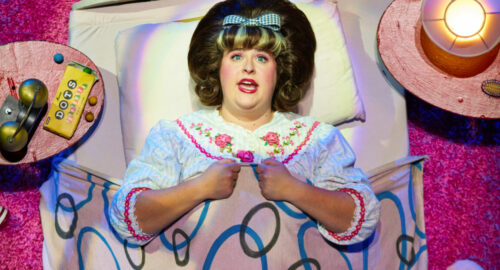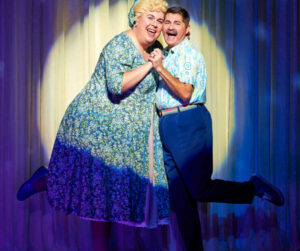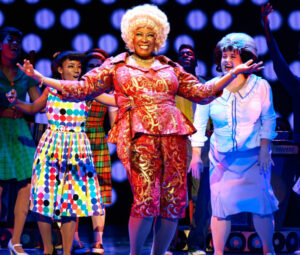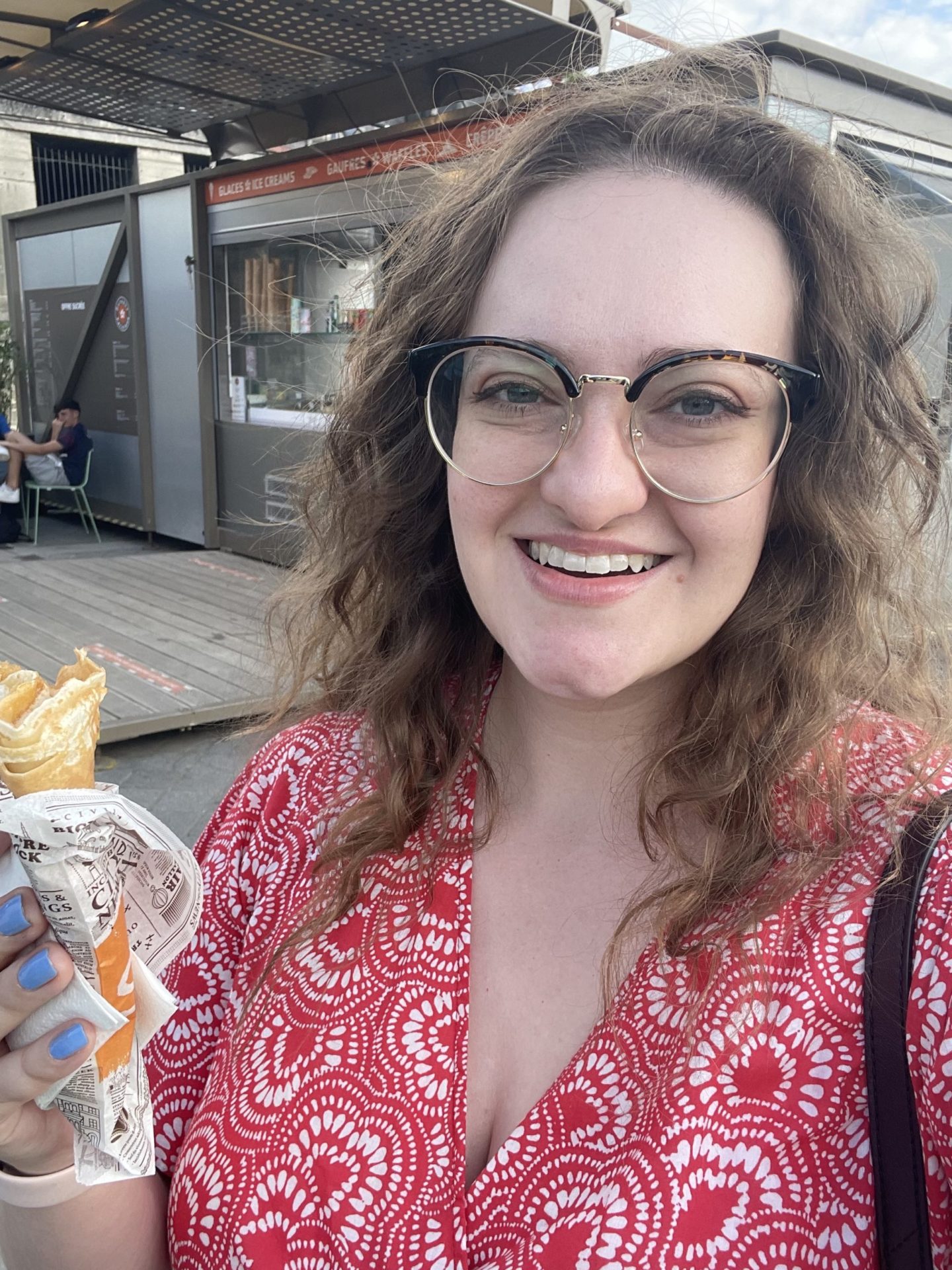Hairspray at TPAC
You (Nashville) Can’t Stop the Beat
Tuesday, June 11 was the opening night performance of Hairspray at TPAC. Hairspray is a Tony Award winning musical with music by Marc Shaiman and lyrics by Marc Shaiman and Scott Wittman, with a book by Mark O’Donnell and Thomas Meehan, based on John Waters’s 1988 film of the same name. Hairspray first opened on Broadway at the Neil Simon Theatre on August 15, 2002. The musical numbers include 1960s-style dance music and rhythm and blues. Set in 1962 Baltimore, Maryland, the production follows teenage Tracy Turnblad as she auditions to dance on The Corny Collins Show, a local TV dance program. Although she is discouraged from this by her own mother, who is fearful of people making fun of Tracy because of her weight, Tracy wins a role on the show with the help of her black friend, Seaweed, who shows her some new dance moves. Seaweed is frustrated that black people only have one night a month to dance on the program and Tracy immediately agrees and wonders why they can’t all dance together.

She becomes an instant celebrity and inspiration after joining the show. She tells Corny Collins that if she ran the show, “every night would be Negro Night.” As she becomes closer friends with Seaweed and his mother, Motormouth Maybelle, Tracy convinces everyone to march against the station at the Mother-Daughter Day dance. Act I ends with the police coming and arresting them all for their protest. Once everyone is back together again, feeling defeated, they come up with a plan to integrate the show, and Motormouth sings about the long battle for equality. The musical ends on the day of the Miss Teenage Hairspray competition, hosted by the Corny Collins show. Although banned from appearing, Tracy storms the show with all of her friends (black and white) and they dance and sing “You Can’t Stop the Beat.” Tracy wins the title of Miss Teenage Hairspray, and declares that The Corny Collins Show is “now and forevermore” racially integrated, while everyone cheers. There couldn’t be a happier ending than that!
Caroline Eiseman as Tracy Turnblad was vivacious, energetic, and endearing. As the teen that won’t give up on her dreams or on her friends, Eiseman portrayed Tracy’s unfailing optimism and teen naivete perfectly. This musical is truly just as much about dance as it is singing and Eiseman dances her way through over two hours of choreography with ease (often while singing the musical numbers as well).

Greg Kalafatas shone as Edna Turnblad, Tracy’s mother. Yes, Tracy’s mother is traditionally played by a man in full drag. In the 1988 movie, Edna is played by the famous drag queen Divine. Edna is ashamed of her weight and is afraid of people perceiving Tracy as overweight and making fun of her for it. We find out in the middle of the play that she hasn’t left their apartment in years. Despite this, she quickly finds her confidence with the help of Tracy, her quirky husband Wilber (played by Ralph Prentiss Daniel), and Motormouth Maybelle. Kalafatas is a force with his comedic timing, vocals, and physical comedy. He often made the audience laugh just with the tone of his voice or a glare. The chemistry between Kalafatas and Daniel was cheeky and sweet. Maybe it’s because I’m not a teen, but I much preferred their romance and love over teen Tracy and her heartthrob, Link.
Seaweed is the character that first alerts Tracy to the inequality on the show. Seaweed shows Tracy a dance move that helps her get noticed while also expressing his frustration that black people can only dance on television one night a month. Josiah Rogers was incredibly charismatic as Seaweed. When he was on stage, it was difficult to look at anyone else.
Seaweed’s mother, Motormouth Maybelle, is the only black character that isn’t a teenager. Deidre Lang had the difficult task of portraying this character who has suffered the most while never losing hope. In fact, when the teens start to believe all is lost, it’s Motormouth that convinces them to continue to fight for equality. Lang’s portrayal of Motormouth was wonderfully compelling. When she sang “I Know Where I’ve Been,” the most powerfully emotional song of the show, I got goosebumps.

The main antagonists of the play, Amber Von Tussle and her mother Velma Von Tussle were played by Caroline Portner and Sarah Hayes, respectively. They were delightfully evil and get their comeuppance in the end in a most satisfying way. Sarah Hayes in particular was completely believable as the middle-aged beauty queen now living vicariously through her daughter.
Another actress that I really enjoyed was Emmanuelle Zeesman. She played three smaller characters: Prudy Pingleton, the gym teacher, and the matron at the prison, and she made me laugh as every single one. Her exaggerated physical comedy was unmatched.
Because this musical is set in the 60’s, one expects lots of bright, fun fashion (think mod fashion, Twiggy, Jackie O, and Brigitte Bardot) and William Ivey Long did not disappoint as Costume Designer. The clothes were bright without being overwhelming, and the hair was big! The scenic design by David Rockwell was also inspired, and I particularly liked the scene in which Tracy, Penny, and Amber are in their respective rooms and singing “Mama I’m a Big Girl Now” with their mothers. All three rooms are on stage at the same time.
There was really only one small thing that I didn’t particularly care for: the teen girls (of course played by adult women) all had a shrill affect to their voices. I assume this was meant to make them seem young, but it really only translated as irritating. In fact, I was so taken aback at the piercing opening lines of “Good Morning Baltimore,” that I startled. It certainly wasn’t Eiseman’s regular voice, because she has a stunning voice when not singing those high notes.
A funny, quirky, and lovable play that is able to seamlessly blend humor and moments of solemnity, Hairspray is a must-see. There might not be a more joyful and uplifting song in any musical than “You Can’t Stop the Beat.” The last song, performed through the end of the play, reminds us that social change will not be stopped, and neither will our dancing feet!



